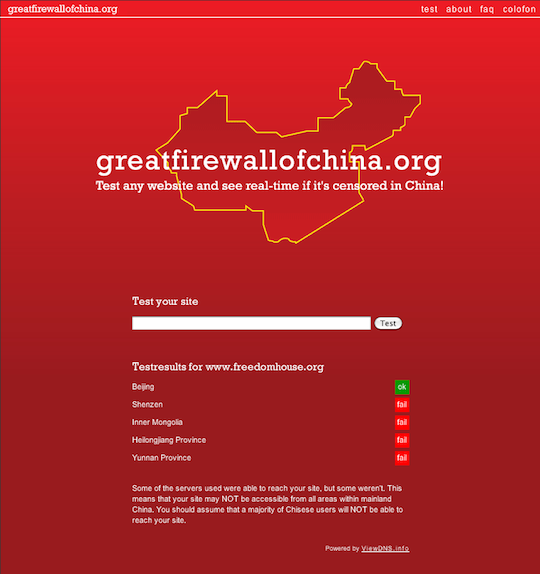The "Virtual Schengen Border" or "Great Firewall of Europe"
- 05 mei 2011
During a meeting in February 2011 of the Council of the European Union’s Law Enforcement Working Party (LEWP), a disturbing proposal was tabled to create a “Great Firewall of Europe” by blocking “illicit” web material at the borders of the bloc with the intention to “to propose concrete measures towards creating a single secure European cyberspace.” European Digital Rights (EDRi) moved quickly to respond to this “madness”.
The LEWP is a forum for cooperation on issues such as counter terrorism, customs and fraud. According to the proposal under consideration, the secure European cyberspace would have a “virtual Schengen border” and “virtual access points” whereby “the Internet Service Providers would block illicit content on the basis of the EU blacklist”.
Some of the concerns raised by civil liberty groups are that there is no clarification as to what this “illicit content” means and that innocent sites are routinely included on such blacklists. Broadband providers are very concerned by this proposal which would actually impose Europe-wide censorship and believe that illegal content should be removed at the source by the cooperation between the police and web hosting firms and not by network blocking which, being easy to circumvent, is no real solution.
“Most absurd of all, despite all of the costs in terms of democracy, freedom of speech and even the economy, there is no analysis of any benefit or expected benefit that, even mistakenly, the architects of this madness expect to outweigh the cost”, stated EDRi Advocacy Coordinator Joe McNamee.
–
The Telegraph, Alarm over EU ‘Great Firewall’ proposal (29.04.2011)
Computerworld, Europe’s ‘single secure cyberspace’ plan under attack (2.05.2011)
Outcome of proceedings of Joint meeting of the Law Enforcement Working Party and the Customs Cooperation Working Party on 17 February 2011 – Summary of discussions (PDF – 3.03.2011)
Dit artikel is gebaseerd op een nieuwsbericht uit de EDRi-gram, de tweewekelijkse nieuwsbrief van EDRi – onze Europese koepelorganisatie van 29 digitale burgerrechtenbewegingen ui 19 lidstaten. Verplichte kost voor iedereen die zich in internetvrijheid interesseert. Inschrijven doe je hier.
Blokkeert de Chinese overheid jouw site? Check het op www.greatfirewallofchina.org (mirror)! En deel je verrassende resultaten in de comments.

